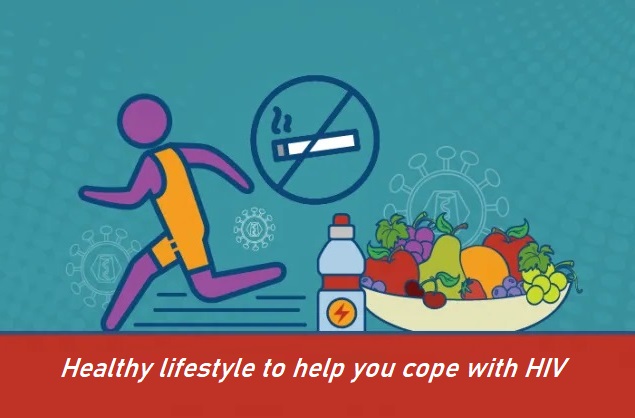
Living with HIV can be challenging, but a healthy lifestyle can help you manage the disease and improve your quality of life. HIV weakens the immune system, making it more susceptible to other health problems.
By adopting healthy lifestyle habits, people living with HIV can strengthen their immune systems, reduce the risk of developing other health problems, and improve their overall well-being.
This article will explore some healthy lifestyle habits you can cope with after HIV testing, including taking medication as prescribed, eating a healthy diet, exercising regularly, managing stress, quitting smoking, getting enough sleep, and practicing safe sex.
By incorporating these habits into their daily lives, people living with HIV can take control of their health and lead long and fulfilling lives.
Take your medication as prescribed.
The HIV virus weakens the immune system. Medications like ARVs help repair and boost the immune system to help your boat fight off opportunistic diseases.
You should therefore ensure you take your medication as prescribed even when you feel well. Skipping medication can lead to the development of drug-resistant strains of HIV, which can make treatment more challenging.
Eat a healthy, balanced diet.
With the virus in your body, you need a healthy diet to boost and maintain your immune system. This will help you manage the virus.
Eat include a variety of fruits, vegetables, whole grains, lean protein, and healthy fats in your diet. You should avoid sugary foods and drinks, high cholesterol and saturated fats, and processed foods.
Exercise regularly
HIV virus can deteriorate your body fast. On the other hand, the medication for treating HIV can make you gain weight and become obese. Obesity can lead to other severe conditions like heart disease.
Regular exercise is therefore important as it can help to improve your overall health and reduce the risk of developing other health problems associated with HIV.
You can start with at least a 30-minutes of moderate-intensity exercise every day. Activities such as walking, swimming, and cycling can be excellent choices for people living with HIV.
Manage stress
Stress can weaken the immune system and make it more challenging to manage HIV. Learn stress-management techniques like meditation, yoga, or deep breathing exercises. You can also engage a counselor or therapist or counselor to help you manage stress.
Quit smoking
Besides yellowing of the teeth and lung problems, smoking gives a conducive environment for the growth of bacteria in the mouth. With a weak immune system, smoking increases the risk of developing lung problems.
Therefore, you should quit smoking which can improve your overall health and reduce the risk of developing other health problems associated with HIV.
Get enough sleep
The body tends to repair the damaged tissues while you are at rest. Getting enough sleep can help your body repair the weakened immune system and manage HIV.
A night of quality sleep should be between 7-8 hours.
Practice safe sex
HIV can be transmitted through sexual contact, so it is essential to practice safe sex to prevent the transmission of the virus. Use condoms consistently and correctly, and consider talking to your healthcare provider about pre-exposure prophylaxis (PrEP) if you are at high risk of HIV infection.
Conclusion
Adopting a healthy lifestyle can help people with HIV manage the disease and improve their quality of life. It is essential to take ART medication as prescribed, eat a healthy diet, exercise regularly, manage stress, quit smoking, get enough sleep, and practice safe sex to reduce the risk of transmission. With proper treatment and healthy lifestyle habits, people living with HIV can lead long and fulfilling lives.

